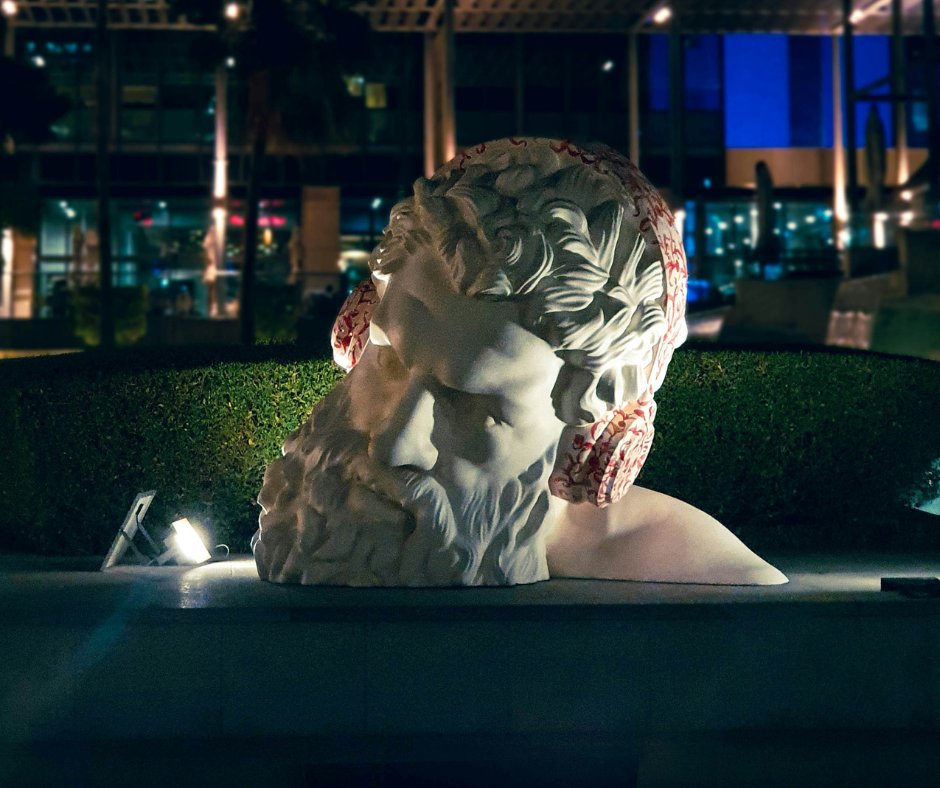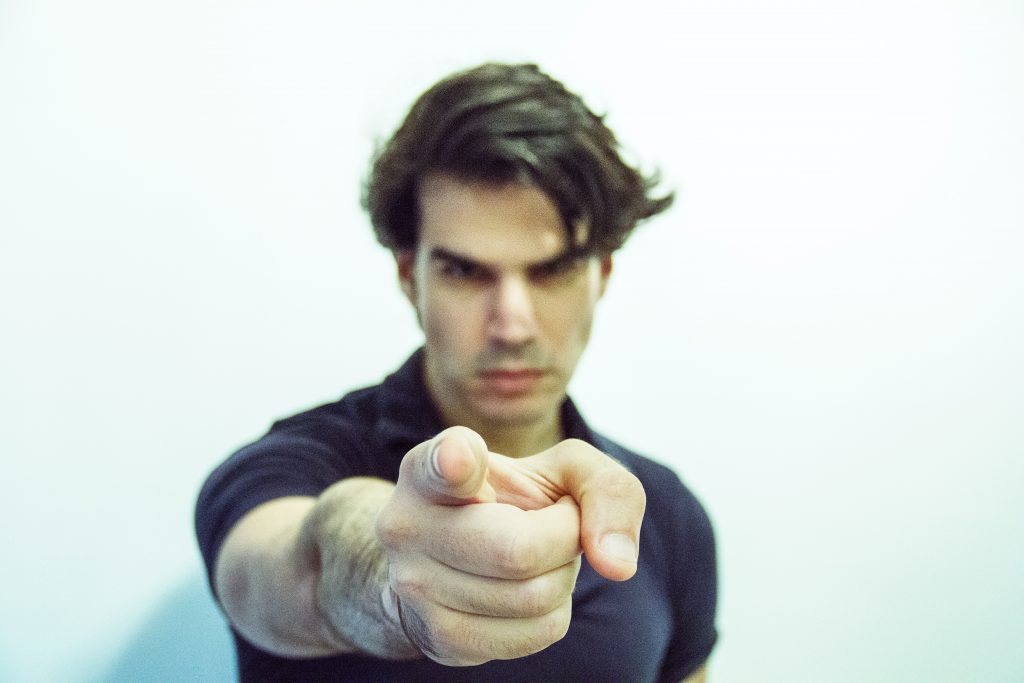I have entered into the jaws of hell, grasped the horns of Beelzebub, set foot upon the murky plains of Orcus and gazed upon the yawning chasms of Tartarus. Yes. I have joined a local gym.
It will be difficult for the uninitiated to comprehend the true extent of the horrors that crouch within the bowels of this threatening locale. We’re not talking luxury establishment here, we’re talking the most affordable end of the market: so affordable, in fact, that one finds oneself pondering exactly how it turns a profit for its owners. Are the fittest of the lycra-clad males somehow disappeared, kidnapped and butchered as unwitting organ-donors for the Diamond Membership gym-goers at David Lloyd? The cheap-tastic gym I’ve become a member of operates 24 hours a day: who knows what goes on in the early hours of the morning.
Simply entering the premises, which sits nestled next to Jewsons Industrial Supplies, is a challenge: one is provided with a PIN number and a QR code, which only veteran members seem able to operate with confidence. “Stick it under the wotsit” says a voice behind me, as I fiddle anxiously with my phone, my friend already through security and staring at me through the fishbowl doors. After a few more seconds of stress, I successfully scan myself into a sealed glass pod, inside which I wait for what seems like an interminable pause, trying to quell the rising panic that I might never be released from the upright glass coffin. After a few seconds, I am spewed out into hell.
WE ARE AN ALL-INCLUSIVE SPACE screams a metre-high wall-notice above a Huel dispensing machine, while the throbbing of intolerable, interminable and unidentifiable music confirms that this all-inclusive space is emphatically not for people like me. The hell-hole itself possesses all the worst qualities of a modern airport, combined with the most depressing establishments to be found in Vegas, Nevada; high ceilings, swirling carpet and synthetic air circulating around a room that never sleeps, no matter what the time of day. Glassy-eyed acolytes move around the equipment like drones around their queen, hovering and quivering with anticipation. Let the horrors commence.
First stop, legs. My ever-patient friend introduces me to a machine designed to supercede the need for squats. I assume the position, which appears to be the one favoured by brutalist midwives back in the 1950s – legs akimbo, knees bent and bottom up. “Put them on the pallet!” says my friend, as my feet flail erratically like the limbs of an upturned cockroach. “Push the pallet away from you as hard as you can.” I oblige, and the pallet fails to move, so my friend adjusts the machine to what must surely be its lowest possible setting, enabling me to gain some kind of purchase upon it. I strain my muscles. Nearby, an ashen-faced male in his 40s stares blankly ahead as he rows back and forth on the spot, AirPods bright white against his ears. Behind him, two younger men laboriously climb a pair of miniature revolving escalators in Sisyphean endeavour. This cannot be happening: I’m having a moment of existential dread and we’re only 5 minutes in.
More leg action with a new machine means using my front thigh muscles to raise a bar from ground level to knee-height. This is quite okay, but I veto the third and final leg-based apparatus, which requires one to lie face-down, spreadeagled over an A-frame reminiscent of the spanking horses favoured in boys’ boarding schools during the 18th century. There has to be a line somewhere, I decide.
The machines themselves are terrifying contraptions with indecipherable instructions, all sprung weights and glistening, wipe-clean leatherette. I survey them dubiously, pondering the fact that my friend had informed me of that morning, that the gym possesses a pool with no water in it. “Why?” I had asked her. “Well, the premises used to be owned by a more expensive brand, but the business model of this one doesn’t run to the cost of a swimming pool,” she said. So the empty chasm remains, presumably waiting for the surely inevitable moment when the gym-goers become overwhelmed by the need to throw themselves headfirst into the abyss.
Finished with the leg-machines, we investigate those designed to challenge the shoulders and arms. Most extraordinary is one designed to support users in attempting full-body pull-ups, a device so complex that I find myself whooshed uncontrollably into the air at the end of the set, dangling from its handles like a spider from a curtain. “There is a more elegant way to dismount,” says my friend, benevolently. “Put your feet on the footholds when you’re in the raised position, and climb down from there.” Of course.
Most of you are probably wondering why on earth I am putting myself through this hideous ordeal. Well, you may recall (I wrote about it here) that around 5 months ago I embarked upon a programme of resistance training with the friend who is guiding me through this chamber of horrors and, reader, I stuck with it. Against all predictions, with the exception of a couple of weeks away and one bout of illness, my friend and I have met twice a week every week since November and she has taken my embarassingly pathetic attempts and turned them into a really quite respectable performance of squats, lunges, push-ups and weight-lifting. My body-shape has changed considerably and I can do things I could not do 5 months ago. I have even tried my hand at dead-lifting and am currently managing 42 kilos (not bad for someone who weighs 47).
Sadly, all good things must come to an end. My friend has finished with a period of gardening leave and is about to embark upon a new, high-powered role doing clever things I don’t understand with sums of money I cannot comprehend for a company I’ve never heard of. As a result, she will regretably no longer have the time to supervise my own personal improvement path, so I am forced to find another outlet for my endeavours. Hence, with her unwavering support, I have set sail across the waters of Hades, with little to no idea as to whether I will honestly have the willpower to see it through in the longterm. We’ll see. My parents are appalled and have openly told me that I won’t stick with it. They may well be right. Yet a stubborn voice of self-knowledge in my head says that I’m more likely to work out if I have somewhere to go and do it; convincing myself that I shall do so in the comfort of my own home has not proved successful so far. My home is too – well – comfortable. So, the hell-hole it is.
Maybe I’ll be like Persephone, and manage to visit hell for at least half the year. Half the year is better than nothing.







